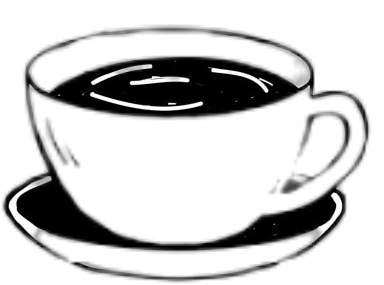
Introduction
As someone who has lived in various parts of the United States, I’ve come to appreciate the diverse cultural practices that define different communities. One question that frequently arises, especially in social settings, is: "Why can't Mormons drink coffee?" This question often leads to broader discussions about faith, lifestyle choices, and the cultural nuances that shape our daily habits. My own journey with coffee has been an eye-opener, revealing much about the beliefs surrounding this popular beverage and offering insights into the practicalities of living without it.
For those unfamiliar with the teachings of the Church of Jesus Christ of Latter-day Saints (LDS), the prohibition against coffee stems from the Word of Wisdom, a health guideline laid out in the Doctrine and Covenants, a sacred text for Mormons. The Word of Wisdom advises against the consumption of "hot drinks," which the church interprets as coffee and tea. As a curious observer, I wanted to dive deeper into this topic and reflect on how it relates to my own experiences with coffee and caffeine culture.
Understanding the Context: Why Can't Mormons Drink Coffee?
To truly appreciate the reasoning behind the Mormon prohibition on coffee, it’s essential to understand the historical and cultural context of the Word of Wisdom. This guideline was introduced in the early 1830s, a time when the church was in its infancy and seeking to define its identity. The health advice provided within the Word of Wisdom has been interpreted and reinterpreted over the years, but the stance against coffee has remained relatively consistent.
As I learned more about this topic, I began to see the larger picture. For many Mormons, the decision to abstain from coffee is not merely about avoiding caffeine; it represents a commitment to health, spirituality, and community values. It’s about making choices that align with one’s faith and lifestyle. Through my interactions with friends and family members who are part of the LDS community, I’ve gained insights into how these beliefs shape their daily routines and social interactions.
The Personal Experience: Living Without Coffee
As someone who has always enjoyed the rich aroma and flavor of coffee, I found the idea of living without it intriguing. I embarked on a personal experiment to see how it felt to abstain from coffee for an extended period. Initially, I approached this challenge with skepticism, doubting whether I could find a suitable replacement for my morning cup of joe.
One of the first things I noticed during my coffee-free weeks was the adjustment in my energy levels. I had relied on coffee to kick-start my mornings and get through the mid-afternoon slump. Without it, I experienced some withdrawal symptoms, such as mild headaches and fatigue. However, I soon discovered alternative methods to boost my energy levels. Herbal teas, particularly those without caffeine, became my go-to morning beverage. I found that ginger tea and chamomile provided a refreshing start to my day without the jitteriness that often accompanied my coffee consumption.
The Role of Herbal Teas: A Great Alternative
While the focus is often on coffee, it’s worth noting that many Mormons and those who abstain from coffee have embraced herbal teas as a delightful alternative. Herbal teas are diverse and can offer a plethora of flavors and health benefits. During my experiment, I explored various blends that not only tasted great but also provided soothing qualities.
For example, I stumbled upon peppermint tea, which became a favorite of mine. Its invigorating scent and flavor helped awaken my senses in the morning. I learned that many herbal teas are rich in antioxidants and can aid digestion, making them a great substitute for those who miss the ritual of brewing a hot drink. My experience led me to appreciate the ritual of preparing tea—an act that felt just as comforting as brewing coffee.
Social Interactions and Cultural Sensitivity
One aspect I hadn’t considered before embarking on my coffee-free journey was the social implications of drinking coffee or abstaining from it. In gatherings with friends, coffee often serves as a social lubricant, a way to connect and bond over shared experiences. I found myself navigating these interactions with newfound sensitivity, especially when in the company of Mormons who abstain from coffee.
At first, I worried about the awkwardness of not participating in coffee-drinking rituals during brunch or gatherings. However, I learned to appreciate the diverse options available for socializing without coffee. Offering herbal teas or fruit-infused water became my new norm. I found that my friends were often relieved to have alternatives, and this shift opened up conversations about our respective lifestyles and choices.
These interactions deepened my understanding of how cultural practices can influence our relationships. It highlighted the importance of being respectful and accommodating to others’ beliefs while still enjoying social experiences. I was grateful for the insights that this journey provided, allowing me to see the value in diverse dietary practices.
Health Benefits of Abstaining from Coffee
Through my exploration of life without coffee, I began to notice some unexpected health benefits. Many studies have highlighted the potential drawbacks of excessive coffee consumption, such as increased anxiety levels and digestive issues. In my case, I felt a notable decrease in anxiety as I reduced my caffeine intake. Without the constant cycle of caffeine highs and crashes, my mood stabilized, and I became more aware of my emotional responses throughout the day.
Furthermore, I began to experiment with a balanced diet that incorporated more whole foods. I paid closer attention to how certain foods affected my energy levels, discovering that nutrient-dense meals kept me feeling energized without the need for coffee. Whole grains, fruits, and vegetables became staples in my diet, helping me maintain consistent energy throughout the day.
The Experience of Morning Rituals Without Coffee
One of the most significant changes I encountered was my morning routine. Coffee had always been my go-to morning ritual, and giving it up required me to rethink how I started my day. I began to embrace the idea of mindfulness during my morning preparations, focusing on the act of brewing tea or preparing a healthy breakfast without the usual caffeine rush.
I discovered that spending a few moments in quiet reflection, perhaps while sipping a warm cup of herbal tea, helped me set a positive tone for the day. It allowed me to appreciate the present moment, transforming my mornings into a more intentional and peaceful experience. This shift not only improved my mornings but also contributed to a more productive mindset throughout the day.
The Broader Implications of Lifestyle Choices
As I delved deeper into the reasons behind the Mormon abstention from coffee, I recognized the broader implications of lifestyle choices on health, spirituality, and community. The decision to abstain from coffee is often viewed as a personal choice that aligns with one’s beliefs, reflecting a commitment to a healthier lifestyle. This commitment resonates with many, regardless of religious affiliation.
Living without coffee opened my eyes to the myriad of choices people make regarding their health and wellness. It became clear to me that these choices are often interwoven with personal beliefs and cultural practices. In today’s fast-paced world, where convenience often trumps mindfulness, it was refreshing to explore a lifestyle that prioritizes well-being.
Product Review Conclusion
Through this journey of living without coffee, I gained a richer understanding of the cultural and spiritual dimensions surrounding the question: "Why can't Mormons drink coffee?" My personal experiences have illuminated the benefits of exploring alternative beverages, embracing herbal teas, and fostering mindfulness in daily routines. I encourage others to consider how their own choices affect their well-being and to explore the diverse options available beyond coffee.
By embracing a lifestyle that honors personal beliefs and promotes health, we can create spaces that are inclusive and respectful of differing choices. In a world where coffee often takes center stage, it’s worth remembering that there are many paths to finding joy and connection without it.
FAQ Section
FAQs about Why Can't Mormons Drink Coffee
Q: Why can't Mormons drink coffee?
A: Mormons abstain from coffee due to the Word of Wisdom, a health guideline that advises against "hot drinks," interpreted to mean coffee and tea.
Q: What are some alternatives to coffee for Mormons?
A: Many Mormons enjoy herbal teas, such as peppermint, ginger, and chamomile, as they offer a variety of flavors without caffeine.
Q: Are there health benefits to avoiding coffee?
A: Yes, many people report improved mood stability, reduced anxiety, and better digestion when they reduce or eliminate coffee from their diet.
Q: How does the coffee prohibition affect social interactions for Mormons?
A: Socially, many Mormons navigate gatherings by offering herbal teas and other non-caffeinated options, fostering inclusivity in social settings.
Q: Can living without coffee lead to a healthier lifestyle?
A: For many, abstaining from coffee encourages mindfulness, healthier eating habits, and a more intentional approach to daily routines, contributing to overall well-being.
